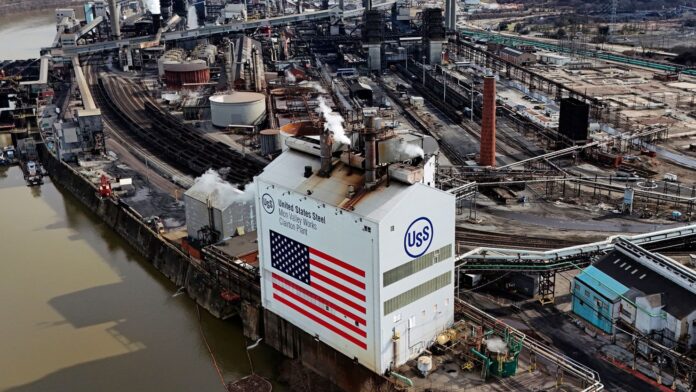WASHINGTON: President Joe Biden on Friday vetoed the $14.3 billion acquisition of US Steel by Japan’s Nippon Steel, citing national security concerns and the need to protect domestic steel production and union jobs.
“Steel production and the workers behind it are the backbone of our nation,” Biden stated, emphasizing that a strong, domestically owned steel industry is vital for national security and resilient supply chains.
The move aligns with Biden’s long-standing opposition to the deal, first announced in 2023, which has faced bipartisan political resistance due to fears of foreign control over an industry that was once emblematic of American industrial might.
The United Steelworkers (USW) union welcomed the decision, arguing it safeguards unionized jobs at aging mills. However, US Steel and Nippon Steel vowed to challenge the order in court, asserting the decision lacked credible evidence of a national security threat.
“Blocking this transaction denies billions in committed investments to modernize US Steel’s facilities and puts thousands of union jobs at risk,” the companies said in a joint statement.
USW countered, stating the company can operate profitably without Nippon’s investment.
The Committee on Foreign Investment in the United States (CFIUS) had left the decision to Biden after failing to reach a consensus on potential risks posed by the acquisition. The president’s stance has sparked concerns among economic experts and industry officials about deterring future foreign investment in American companies.
Critics, including former Obama administration economist Jason Furman, labeled the decision a “political cave to special interests,” arguing it may harm the steel industry’s competitiveness and economic vitality.
Once a symbol of America’s industrial strength, US Steel has struggled for decades. Its peak production occurred during World War II, but the company now lags behind competitors like Nucor and Cleveland-Cliffs.
Foreign and domestic rivals have modernized with advanced technologies, leaving US Steel reliant on outdated, labor-intensive methods. Nippon had pledged to invest $2.7 billion to upgrade US Steel’s aging facilities and maintain operations at unionized mills, a commitment now uncertain.
The decision also holds political significance, particularly in Pennsylvania and Indiana, where many US Steel workers and retirees reside. Unionized jobs at integrated mills remain a critical concern, as Nippon’s plans include transitioning production to more efficient mini-mill operations in Texas.
While Biden’s decision reflects his administration’s broader economic and labor priorities, its long-term impact on US Steel’s viability and foreign investment in the United States remains unclear.
Shares of US Steel fell nearly 6% following the announcement, underscoring investor concerns about the company’s future amid mounting financial and operational challenges.




